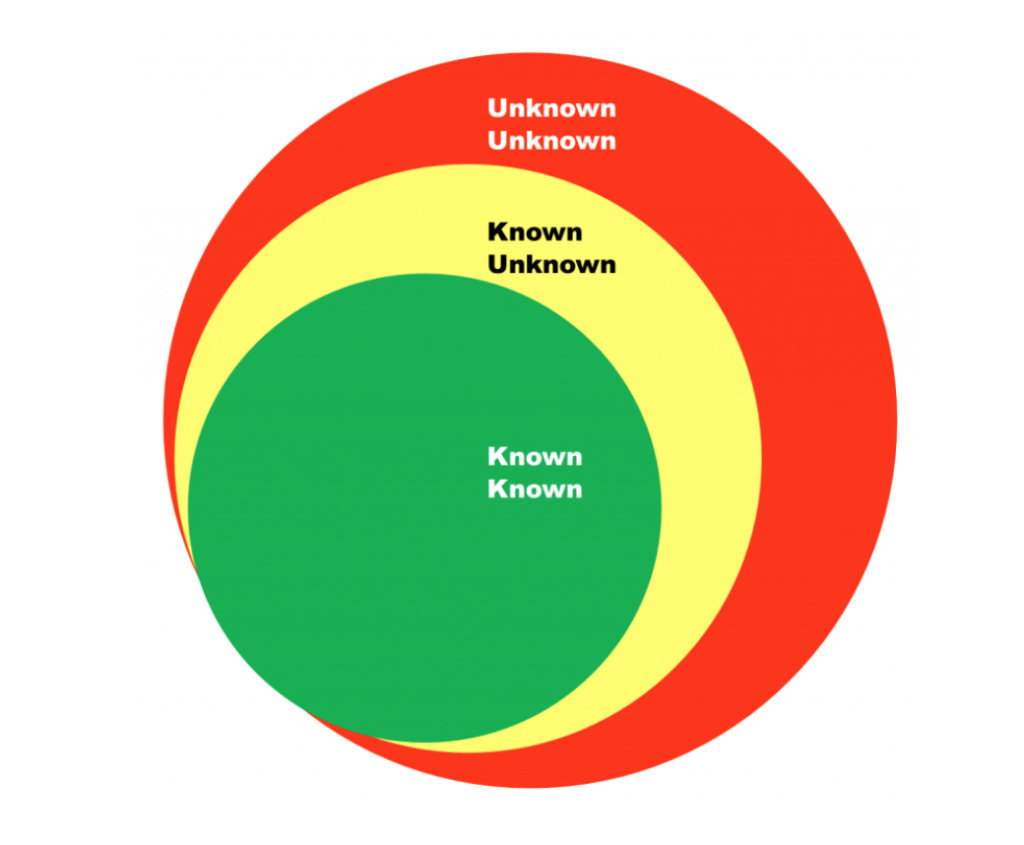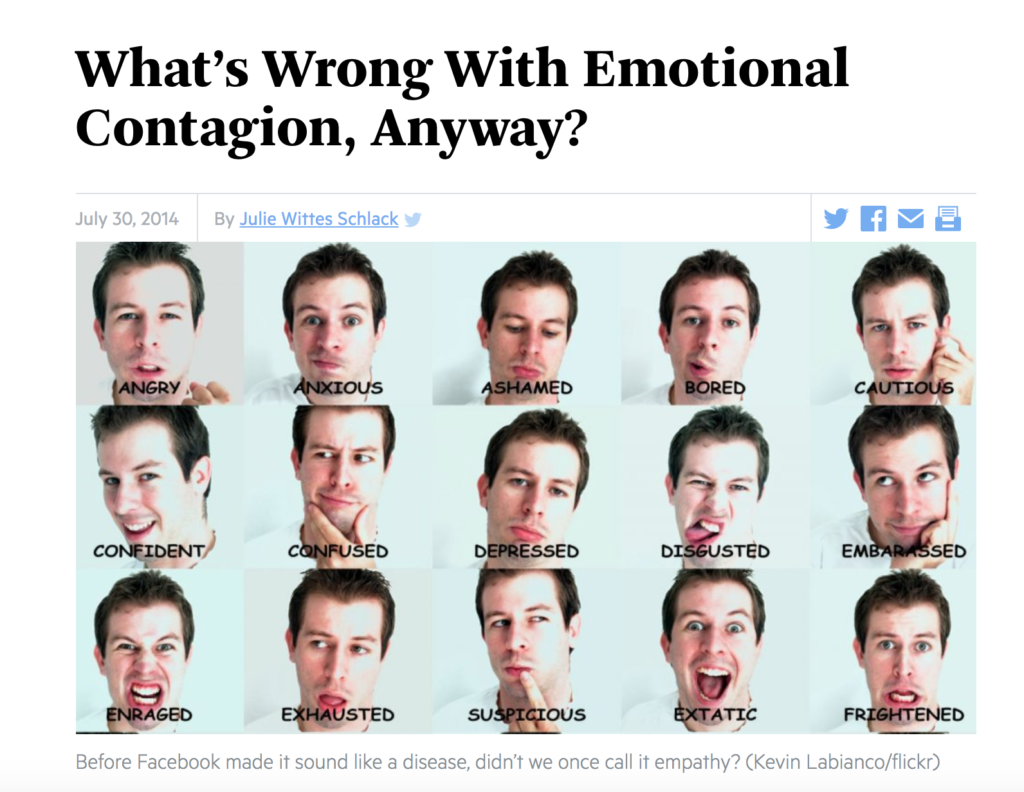How Does Empathy Work With Research Ethics?
In order to understand ethics we must first take a look at what empathy is and what it’s not. Empathy is not pity and it does not exist in isolation. Empathy is collaborative and interactive as you have to first find out how to let go and dance with the unknown unknown. It takes time, authenticity and a lot of effort to really try to understand someone else’s lived experience. Vivian Castillo’s speech at the UXR Conference in 2018 had great insight into the understanding of ethics and power. “Empathy is all about human connection.”-Vivian Castillo
Empathy is a conversation with ourselves and the people/things that we come in contact with in our environments. Asking ourselves hard questions about how our privilege informs our work during research and being transparent about the things we do not know that we don’t know we don’t know is honest. If we lead with the graph below then we know that there is always something to be learned and discovered beyond the reaches of our own personal knowledge. Humility is imperative if we want our work to have both integrity and credibility. Humility is one of the foundations of empathy having the ability to take yourself out of the equation while also recognizing that you’re more than likely a part of the problem is essential. Ensuring that risks don’t outweigh the rewards is a metric researchers should become more familiar with.

Do no harm
Nicolas Bowman wrote in UX Booth, “As a dramatic example, a team of biomedical researchers might approach terminal cancer patients with an opportunity to participate in a case-control study in which they are randomly assigned to receive either (a) a proprietary and experimental cancer medication or (b) a placebo. In this case, the societal benefits (a potential cure for a particular cancer) are thought to outweigh the risks (the eventual death of terminal cancer patients not receiving the experimental medication).” There is a question amongst researchers that deals with wether or not societal benefits are more important than the individual? Research happens beyond the binary as there is no right or wrong, black or white it’s an agreement made between two parties–participants and researchers–who want to bring about a change. Being transparent throughout the research process is a great way at keeping miscommunication to a minimum. As an example of unethical practices we can take a look at Facebook, a company who has become more known for their non-consensual user experiments than their social networking services.

In 2012 Facebook abused more than 700,000 of its users data by tampering with their newsfeeds. By exploiting it’s user’s information in order to determine whether exposure to positive or negative sentiments influenced their moods, Facebook risked the psychological effects of its users in order to prove an unnecessary point. The conclusion of this study was that emotional states can in fact be transferred to others via emotional contagion, leading people to experience the same emotions without their awareness. This study didn’t allow the participants to give consent nor did it allow the participant the right to withdraw from the research. Most recently Facebook was one of the key players in the Cambridge Analytica scandal. Cambridge Analytica was a British political consulting firm that specialized in data mining, data brokerage, and data analysis with strategic communication during the electoral processes. Equipped with personal data provided by Facebook Cambridge Analytica had the ammunition to carry a full out attack on impressionable publics. From Australia to the United States Cambridge Analytica was able to corrupt the electoral process of different countries all over the world by utilizing money, power and Facebook.
Participant’s safety
UX researchers should still ask the question: “Would participants in this study be exposed to risks that are greater than those encountered in everyday life?”-Nicolas Bowman
The idea is that technology researcher’s studies are usually harmless, studying one’s interaction with different devices or interfaces, for example how long one spends looking at advertisements is true–but there are things to be considered like the safety of the participant’s data along with their emotional wellbeing. In order for researchers to maintain credibility we must ensure our participants are protected that means making their data private by using encryption or using blockchains and gaining consent. In general, chances are that if a UX research team doesn’t feel comfortable informing users about their role in a study, then they shouldn’t be conducting the study in the first place.
In conclusion, with research comes a lot of responsibility. There is a lot of opportunity to learn about different demographics in this field; by practicing diversity, equity and inclusion consistently we can start building solid ethical principals in usability research.

